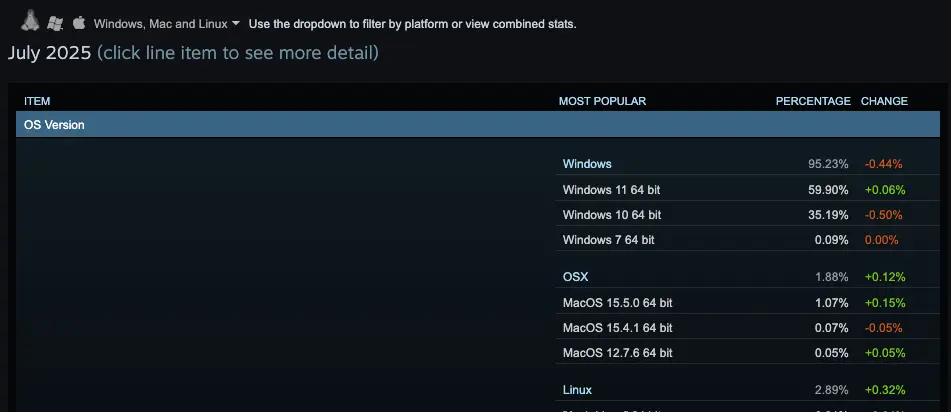You seem to look at it quite pessimistically imho, but I'll try and counter ;-)
developers won’t support a third platform
We're not talking about a vastly different ecosystem. Probably Android-derived (which is open-source), very likely Linux derived. So compatibility is not going to be a huge issue, hence developing not hard. Developers will usually follow where user demand goes, not the other way around.
nor will customers move to a platform that doesn’t have the big apps that they need
Most of the big apps today have a smaller equivalent, check AlternativeTo.net.
Doubling your market share is easy when your market share is so low.
Generally true, but we're talking a growth of millions of users a year. Millions of people is no small number. 5% of the US' traffic are from Linux desktops, according to StatCounter (here's an article with many links).
Nope, not in the tens of millions
You're correct wrt. gaming, as 2.89% of 157 million active monthly users is about 4.55 million, which is not a small number either.
If you look at Linux desktop users in the US however, we're talking over 5% of 347 million, which is 17.35 million users in the US alone, which is also not a small number. It's more than the population of Greece and Bulgaria combined.
Purely because of the steam deck (wrt. Steam Linux users growth)
Do you have numbers? I can't find any official numbers of active users on the Steam Deck, but there are estimations of 3+ million devices sold. I feel like I keep seeing posts of people who move over to Bazzite and similar distros these days for the sake of playing games, but nevertheless, both of these factors weigh in, and are steadily increasing the adaptation of Linux systems.
without [kernel level anti-cheat] it will never take off because the overwhelmingly most played games all have kernel level anti-cheat.
This is denying the antecedent. The amount of games, and money in games, without KLAC is plenty substantial to make a difference in the approach of both developers and DRMs, further increasing ease of adaptation by users. Do not undermine nor underestimate the potential of marginalities.
